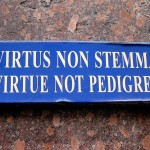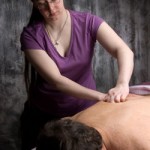When we set aside time specifically to practice — at our altars, in ritual, with our covens, at our desks, or elsewhere — it’s formal practice. For me, formal practice is where my spirituality sinks its roots into my life. But as far as I know, there are no Pagan monastic orders, and that means that most of us spend the vast majority of our time away from our altars, living our lives.
One of the things I most love about Paganism is that it firmly asserts that this, too, is holy. Whatever form you understand the sacred to take, most Pagan traditions see it in everything, and that means it permeates not just every being we encounter, but also every moment and every aspect of our lives. We always have the opportunity to practice.
Practicing away from the altar increases integration and helps us hold on to our values when they come into conflict with those that surround us. It strengthens our sense of connection. When we are loving an activity, it helps us love it more completely, and when we are resisting, it gives us a way to choose engagement instead of flailing.
One easy way to engage in informal practice is to practice presence. When we are present with an activity, whether it’s reading to a child or going for a walk, we bring all of ourselves to it. Sustaining presence is a surprisingly difficult skill: if you’re like me, you’ll notice your mind drifting off every few minutes and will have to return your focus to the activity at hand. But I find a kind of contentment in full presence that I rarely experience while distractedly trying to do six things. You can be present with almost any daily activity: eating, washing dishes, greeting others, tidying, exercising, even showering or washing your face.
Another way is to specifically consider the spiritual aspects of particular parts of your life. I find this hard to remember to do in the moment, so when I want to focus on an activity in this way, I often choose to use a prayer, song, or other piece of liturgy every time I do it, which helps remind me. Judaism has a beautiful tradition of blessings that accompany many daily activities, and I’ve adapted this concept to my own life, both in the sense of offering and of acknowledging that I am receiving blessings.
I look forward to sharing some guest posts on informal practice in the coming weeks, but in the meantime I’d love to hear what you do away from your altar that you understand in a spiritual context.

















